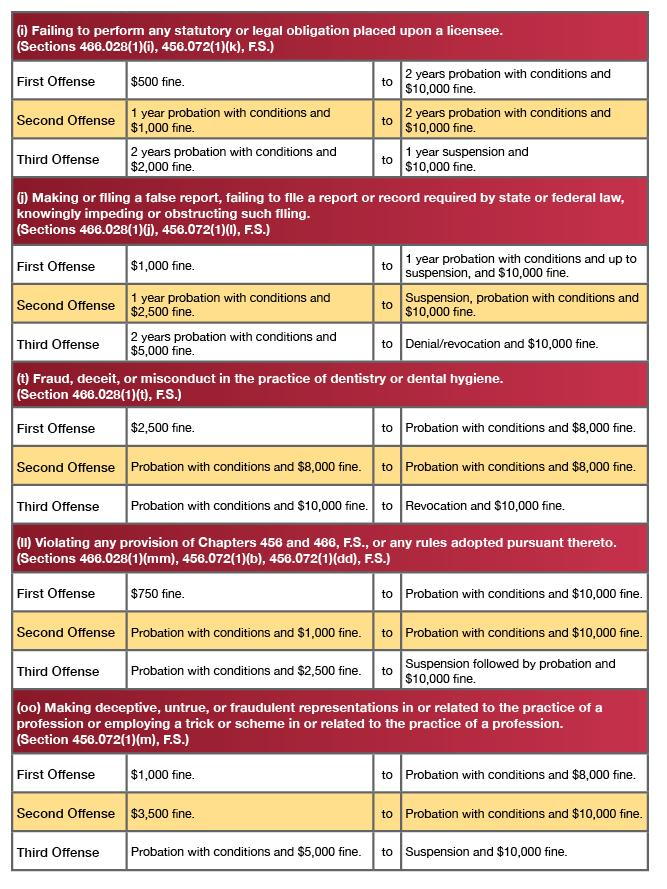
 The Florida Board of Dentistry (Board) takes a dim view of those who alter dental records. If a licensee is found to have altered a dental record, the Board has a full range of penalties available to address the violation, including loss of the dental license and significant monetary penalties.
The Florida Board of Dentistry (Board) takes a dim view of those who alter dental records. If a licensee is found to have altered a dental record, the Board has a full range of penalties available to address the violation, including loss of the dental license and significant monetary penalties.
The Florida Department of Health (DOH) is the agency charged with investigating and prosecuting violations of the Dental Practice Act, including the issue of whether dental records have been altered in violation of the requirements of the Board. The DOH has a wide range of statutory violations to choose from when presented with altered dental records.
Under the Board’s Rule 64B5-13.005(3), if the DOH believes the alteration of the dental record was intentional and constituted fraud or making a false or fraudulent representation, it will seek a minimum mandatory fine not to exceed $10,000.00 for each count or separate offense, in addition to any other penalties outlined in the Board’s disciplinary guidelines.
Typical charges for altering the dental record include the following possible violations and subsequent penalties:
Most professional licensing boards view altered records as evidence of a fundamental character flaw in the licensee and they will seek the higher range of penalties including suspension and loss of the license. The Board of Dentistry is no different.
Although permittable, if you need to make a late entry in the dental record, to avoid any allegation that you are seeking to alter the dental record, you should follow the Board’s rule on record keeping. Rule 64B5-17.002(2) states: “Record Alterations: Any additions, corrections, modifications, annotations, or alterations (hereinafter ‘change’) to the original dental record entry must be clearly noted as such and must include the date when the change was made, must be initialed by the person making the change, and must have an explanation for the change. An original entry to the record cannot be partially or wholly removed. Rather, to represent the deletion of a record entry, the entry must be struck through where it will remain legible. A change made on the same date of the original entry must also include the time of change.”
This requirement is applicable to handwritten records and electronic records. If you have any doubts before you make alterations or changes to a dental record, consult with an attorney.
By Jon M. Pellett, JD, Managing Attorney – Administrative Defense, Medical Investigation Defense Unit
Reprinted with permission. ©2018 The Doctors Company. For more patient safety articles and practice tips, visit www.thedoctors.com/patientsafety.
The guidelines suggested here are not rules, do not constitute legal advice, and do not ensure a successful outcome. The ultimate decision regarding the appropriateness of any treatment must be made by each healthcare provider in light of all circumstances prevailing in the individual situation and in accordance with the laws of the jurisdiction in which the care is rendered.

